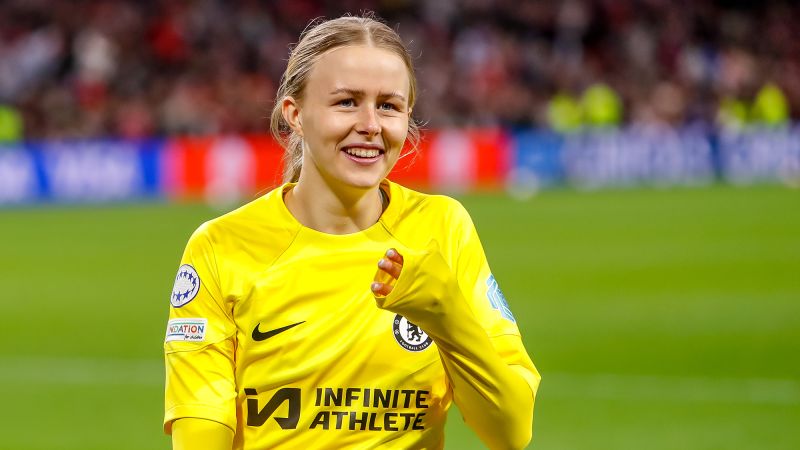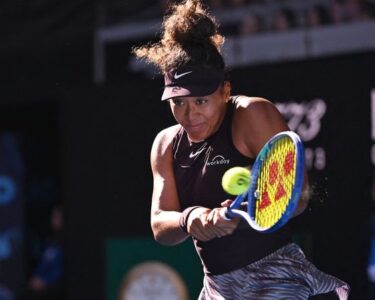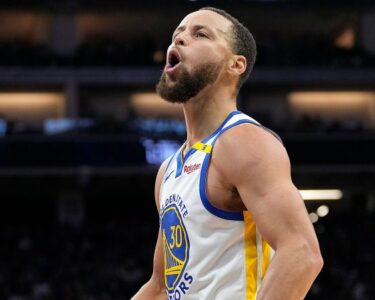CNN
—
The Chelsea and England national team goalkeeper Hannah Hampton was just 11 years old when the diagnosis was made. The doctors who’d been treating her said there were three careers that she could never pursue: brain surgeon, pilot and professional athlete.
Yet somehow, Hampton is now one of the best ‘keepers in the world, and she can’t quite explain how she conquered such seemingly impossible odds.
Speaking with CNN Sport, Hampton recounted her inspirational journey, starting with a series of eye surgeries at the Birmingham Children’s Hospital before the age of three. “I was born cross-eyed,” she explained, adding, “They’re not completely fixed.”
The surgeries were not entirely successful; she cannot perceive depth in her vision, something that would handicap anyone relying on their hand-eye coordination.
“If I wanted to pour a glass of water,” she described, “and I’m not holding the cup that I’m pouring into, then I will miss it completely.”
Hampton chuckled as she recalled the Chelsea team dinner from the previous night of the team’s preseason tour of the United States: “I was pouring everyone glasses of water and I completely missed and got the whole table absolutely soaked. Everyone was just laughing at me because, obviously, they know!”
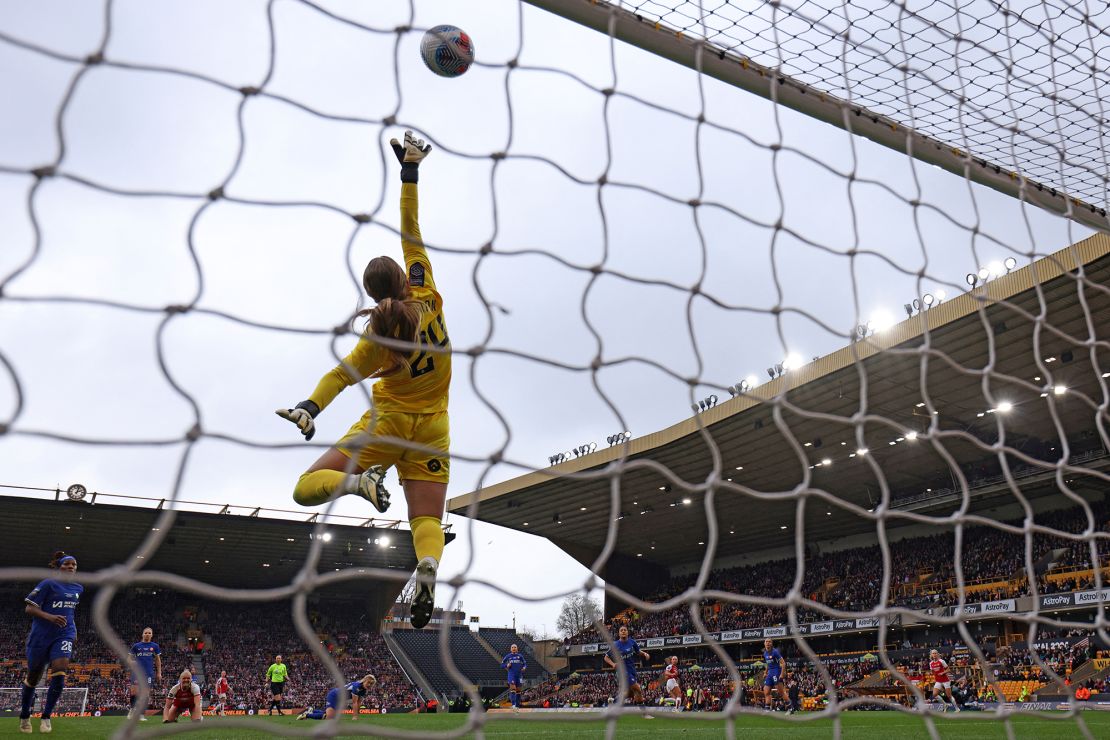
Hampton’s family moved from England to Spain when she was five, and that’s where she fell in love with football. She regularly watched Villarreal with her father, idolizing stars like Santi Cazorla and Marcos Senna.
Hampton’s earliest memory with a ball at her feet was an inflatable ball on the sidelines of her brother’s games, and by the time she was playing regularly with her friends in the school playground, she knew that football was a passion she wanted to pursue.
At the time, the women’s game wasn’t as well-funded or publicized as it is now, so she dreamed big. “I always thought I’d be the first woman to play in the England (men’s) team, because I never knew there was a women’s team and as soon as I found out about that, that was my dream and ambition straight away.”
Such aspirations were a long way from the days when she tried to play other sports at school. “When I was younger playing basketball and stuff,” she recalled, “I was breaking every single finger I possibly had. And I thought, ‘Why is it always me? Like, why can I genuinely not just catch a ball?’” The medical diagnosis explained everything, but her parents didn’t see the need to step in and shatter her dreams as well.
“I think there was a certain point where they wanted to sit me down and say, ‘You actually can’t take this professionally,’ but when they realized it wasn’t really causing me much problem, they just let me keep going to see how far I could get it: ‘Whatever she enjoys, she will do.’”
Hampton initially began playing in a forward position at the Villarreal Youth Academy before dropping all the way back into the goal when she returned to England at the Stoke City Centre of Excellence.
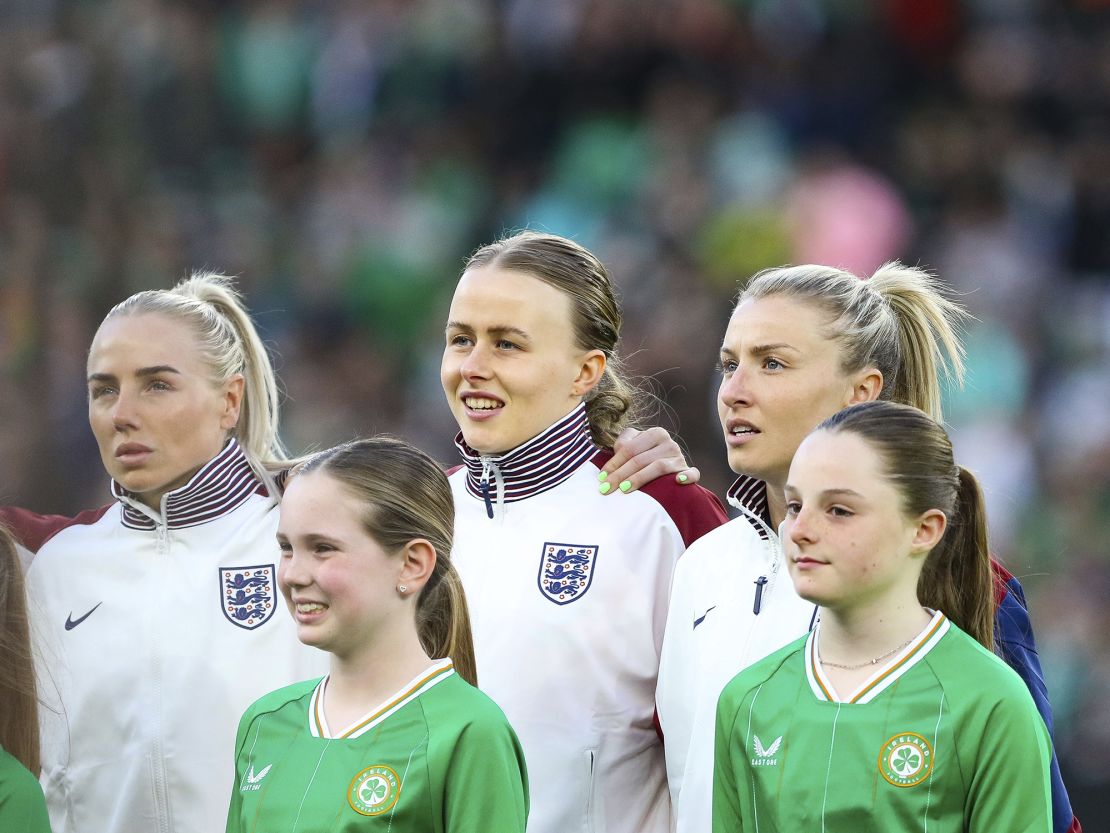
As talent scouts began discovering her potential, she was caught between the two positions, so she told herself she could play in goal for England but outfield for Stoke City.
In any case, her lack of depth perception wasn’t becoming the hindrance that the doctors had predicted. She can’t really explain why, saying, “I guess I just had to deal with it; I think I just had to adapt. I had to judge when it’s at a certain point, that’s when I have to catch it.”
Hampton’s senior career began with Birmingham City before moving to Aston Villa, and by the time she arrived at Chelsea in 2023, she’d won the European Championship as a squad member with England and a runner-up medal at the World Cup.
In her first season for the Blues, she established herself as the first-choice goalie and kept 10 clean sheets as they won a fifth consecutive league title on the last day of the season.
“Hannah has come into the club and fought really hard to get into the position she’s in,” said the team’s then coach Emma Hayes. “She’s been an absolute joy to coach. She’s like a sponge, so coachable, and really infectious. She gives a lot of energy to the group.”
Hayes has since moved on from Chelsea, quickly winning an Olympic gold medal with the US women’s team in Paris. Her extraordinary legacy of seven WSL titles in just 10 seasons is now in the hands of the former Lyon and France coach Sonia Bompastor.
“Chelsea without Emma feels a bit weird and sounds weird saying it,” Hampton reflected. “But the legacy Emma created, we’re obviously going to keep it going. Sonia has an amazing legacy on the pitch as well as off, so we’re excited to try and improve it.”
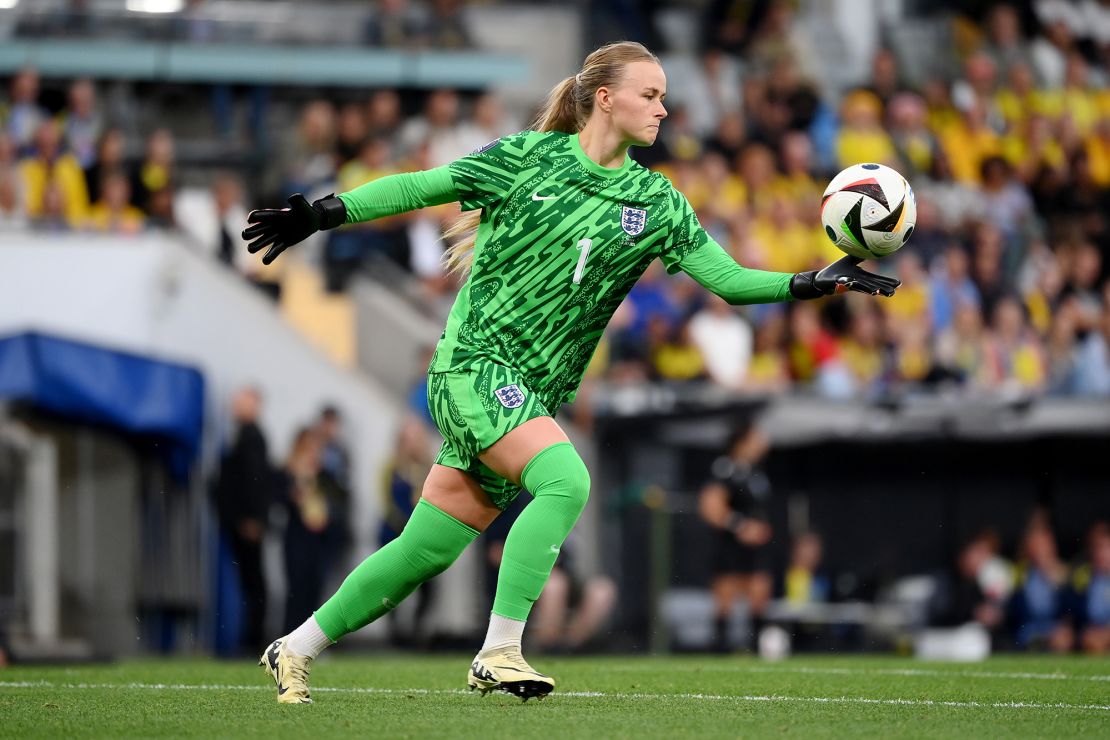
Meanwhile, Hampton is hoping to work herself further into the England squad and establish herself as the first name on the team sheet.
“It was unbelievable being a part of that Euros group that won,” she enthused, “but I want to play in a major tournament. Being able to say that you’ve represented your country and played is something quite special. I want to try and get the next number one spot possible.”
Having started her career without any female role models to look up to, Hampton is now among a generation of women who are revolutionizing the professional sports landscape in Europe. But, at the age of 23, she struggles with the notion that she is now inspirational to others.
“Personally, I don’t see myself as a role model,” she said. “Not yet. Loads of people come up to you and say you are role models for them, and it’s lovely to hear, don’t get me wrong. But it just feels a bit weird, I’m still only 23, and I’m still looking up to players (myself).”
In more ways than one, Hampton has overcome adversity to become a successful female sports star, and her vision for the future is clear: “There’s so many things we’ve had to overcome in our careers, but that shouldn’t be the case for everyone. It’s lovely the way the women’s game is positioned now, but we definitely know we can get it further.”


